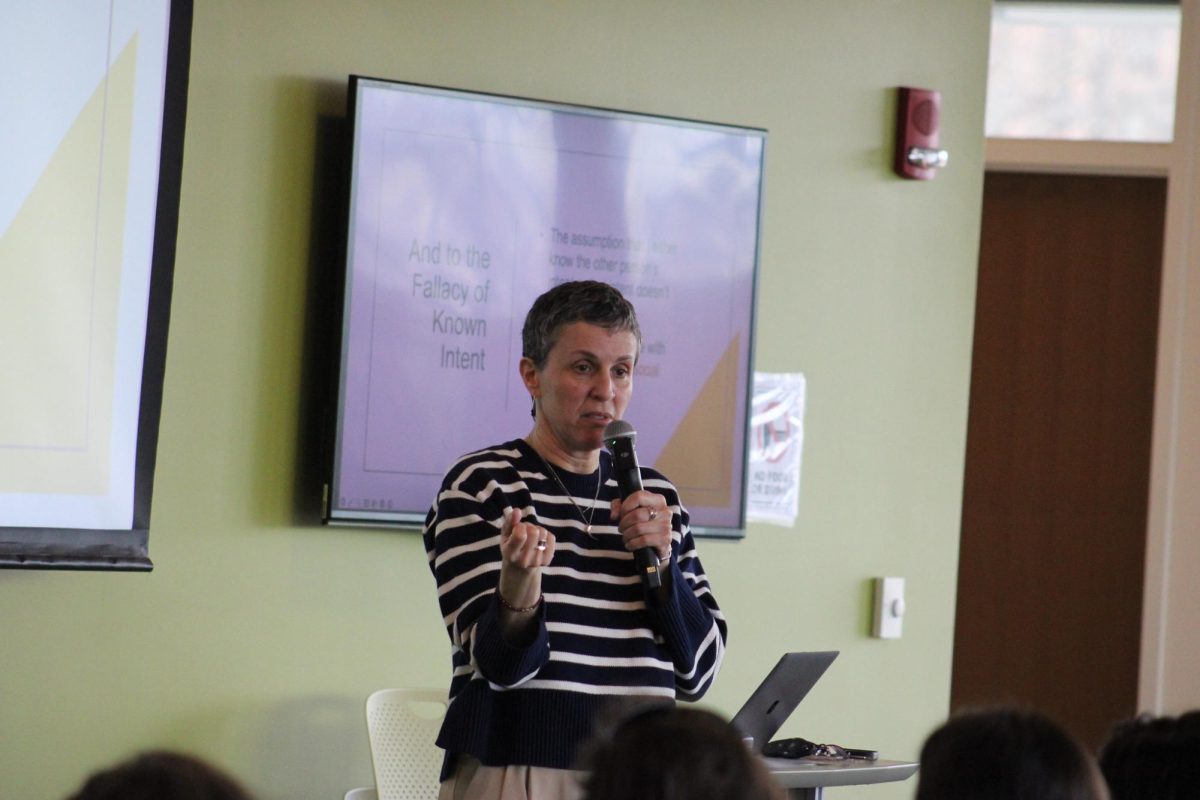On Monday, April 1, Ilana Redstone, professor of sociology at the University of Illinois, spoke about the “Certainty Trap” in the 2024 Freedman lecture.
The “Certainty Trap” is a failure to see one’s knowledge as provisional, recognize downsides to the positions and opinions one prefers and acknowledge other people’s opinions. In the talk, Redstone described the Trap’s tendency to drive people to judge harshly and demonize those who disagree with others’ opinions.
“Not all certainty is a trap,” Redstone said. “What I’m solving for in this work is the certainty that drives contempt with political issues.” Her goal was to discuss how people’s certainty threatens democracy within society, and how the trap can be avoided through different processes of thinking.
Redstone used political headlines in the media as an example, citing how they divide people’s opinions without respecting the other side through their word choice.
People who are stuck deep in this “Certainty Trap” have the mindset of “if you care about what’s right, the choice is clear and the people who disagree are hateful, ignorant or both,” Redstone said.
For democracy to continue, Redstone believes it is important that society values being able to live together with disagreement. “We need to see most of our fellow citizens as capable of reasonable thought most of the time,” she explained.
Redstone added that everyone has an obligation to come up with a version of their opponent’s position or opinion that would make sense to one another. Without doing so, Redstone says, democracy will fail, and “if we fail, we all fail.”
Instead of using certainty to decide opinion, the use of confidence is significantly better when making an educated guess, as it allows for research of the guess.
Italian physicist Carlo Rovelli said, “Between certainty and chaos, there’s a huge space, that’s where humans need to conduct their business.”
Redstone then addressed some commonly asked questions.
“Avoiding the Certainty Trap does not mean we have to believe in conspiracy theories,” she said. “To avoid this trap only means a person is free to decide what they wish to believe in, while recognizing the other side’s way of thinking about the theory.”
After the presentation, Lynn Griesemer, District two councilor for the town of Amherst, asked Redstone, “But you have to finally make a decision [that could involve some type of certainty.] You’re on a board, you’re on a committee, you’re a trustee at a university … talk about how you communicate that.”
Redstone responded by explaining how it’s imperative to be transparent in the decisions one makes for an institution and to be clear about the goals the decision will accomplish.
“You can’t sit in a place of paralysis,” Redstone said.
Eva Maniatty can be reached at [email protected].




















